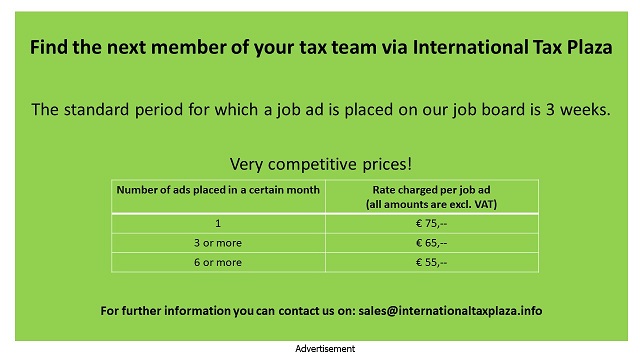On April 11, 2024 on the website of the Court of Justice of the European Union (CJEU) the opinion of Advocate General Medina in the joined cases C‑555/22 P (United Kingdom of Great Britain and Northern Ireland versus the European Commission), C‑556/22 P (ITV plc versus the European Commission) and C‑564/22 P (LSEGH (Luxembourg) Ltd and London Stock Exchange Group Holdings (Italy) Ltd versus European Commission).
According to Advocate General Medina both the Commission and the General Court erred in law when considering that the Controlled Foreign Company (CFC) rules, instead of the general UK corporation tax system as a whole, were the correct reference framework for examining whether a selective advantage had been granted.
By decision of April 2, 2019, the European Commission found that the United Kingdom had granted between 2013 and 2018 illegal state aid to certain multinational groups by means of tax advantages. Indeed, it considered that the UK unduly exempted those groups from a tax scheme targeting tax avoidance.
According to the Commission, the UK's Controlled Foreign Company (CFC) rules were aimed at preventing UK companies from using a subsidiary, based in a low or no tax jurisdiction, to avoid taxation in the UK. They allowed the UK tax authorities to reallocate all profits artificially diverted to an offshore subsidiary back to the UK parent company, where it could be taxed accordingly.
However, between 2013 and 2018, the CFC rules included an exemption for certain financing income (i.e. interest payments received from loans) of multinational groups active in the UK. The Commission considered part of this group financing exemption (GFE) as illegal tax advantage. It ordered the UK to recover it from its beneficiaries.
The United Kingdom and the company ITV challenged the Commission decision before the General Court of the European Union. By judgment of June 8, 2022, the General Court dismissed their actions.
The United Kingdom, ITV and two companies of the London Stock Exchange Group appealed to the Court of justice.

In today’s opinion, Advocate General Laila Medina proposes to the Court of Justice to set aside the judgment of the General Court and to annul the Commission decision.
In order to determine whether a national measure constitutes State aid, the Commission must, inter alia, demonstrate that the measure confers a selective advantage on the beneficiaries. In order to classify a tax measure as ‘selective’, the Commission must begin by identifying the reference system, that is the ‘normal’ tax system applicable in the State concerned. Next, the Commission must demonstrate that the measure at issue derogates from that reference system because it differentiates between undertakings in a comparable situation.
When determining the reference framework for the purposes of applying Article 107, Paragraph 1 TFEU to tax measures, the Commission is, in principle, required to accept the interpretation of the relevant provisions of national law given by the Member State concerned in the context of an exchange of arguments between that State and the Commission. The Commission’s interpretation will prevail over the Member State’s interpretation only if the Commission can establish that the latter interpretation is manifestly incompatible with the wording and objectives of the national provisions at issue.
Further to a detailed assessment of the provisions of the applicable national law, the Advocate General concludes that the General Court and the Commission erred in law when considering that the CFC rules constituted the correct reference framework for examining whether a selective advantage had been granted. Instead, the correct reference framework ought to have been the general UK corporation tax system. The CFC rules form part of that system and cannot be severed from it. The General Court thus erred by abstracting one set of rules (the CFC rules) from their broader legislative framework (the general corporation tax system).
Indeed, the CFC rules can only be fully understood when considering the UK corporate tax system as a whole. According to the Advocate General, in the context of determining the reference framework, the Commission and the General Court failed to carry out an objective examination of the content, structure and actual effects of the applicable rules under the national law concerned. Therefore, the error made in the determination of the reference framework necessarily vitiates the whole of the selectivity analysis.
The text of the opinion of the Advocate General as published on the website of the CJEU can be found here.
Copyright – internationaltaxplaza.info
Follow International Tax Plaza on Twitter (@IntTaxPlaza)




